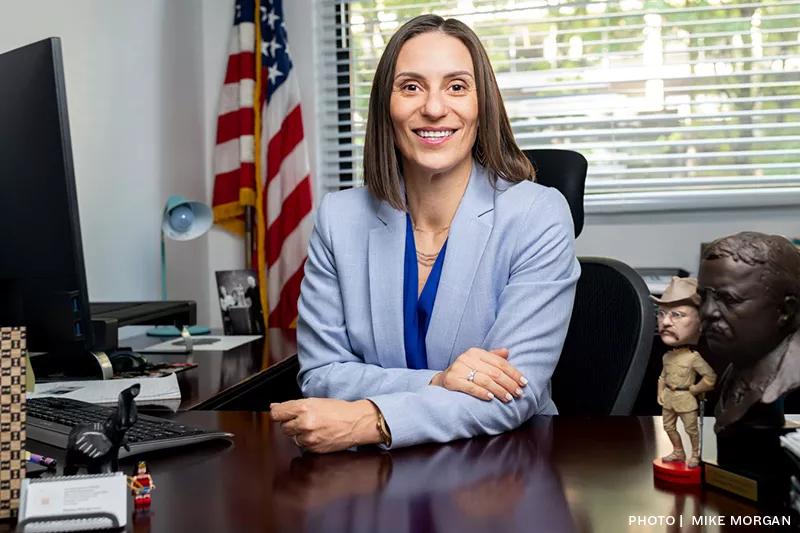Talent Development Leader
Built for Durability
Building skill sets beyond technology gives employees an advantage.
Tue Aug 13 2024

Bookmark
Currently, about 8 percent of the federal workforce is under the age of 30, according to the Federal News Network. In the private sector, approximately one in five workers are younger than 30. Those statistics hit home for Matisha Montgomery, chief learning officer for the US Department of Housing and Urban Development.
The average age in HUD’s workforce is 50 years old—and only 4 percent are age 30 or younger, Montgomery notes. Further, approximately 45 percent have worked for the agency for less than five years.
“When you're thinking about skills development and the talent pipeline, there's a mismatch,” she says. “I think a lot about whether we are doing enough to attract and ready the next generation of workers.”
For instance, during her nearly two decades working in the public sector, Montgomery has experienced challenges with obtaining and applying the latest technologies due, in large part, to government security protocols. However, young workers “seem keenly aware of technology and its effectiveness for communicating and gaining rapid access to information,” she states. “We might bring in someone who is excited about the mission and has ideas about what they can do with personalization, digitalization, and [artificial intelligence], but there's not always a path forward. They get frustrated. They leave.”
According to Montgomery, one solution to recruiting and retaining young talent starts with being realistic with candidates about what the role has to offer. “It's crucial to be transparent about the challenges while also emphasizing the positives of working in government. At HUD, our mission and the impact of our work are unparalleled. Additionally, we are a data-driven agency, which can be particularly appealing to certain candidates.”
What’s more, Montgomery believes the imperative for federal workers to find ways to be creative and innovate with the resources and tools available to them can attract certain types of talent. “We have a lot of data but limited tools and resources,” she continues. “Our team members frequently need to find creative ways to build solutions from the ground up.”
Enter durable skills
To foster innovation, Montgomery believes that federal talent needs durable skills such as communication, emotional intelligence, and critical thinking.
“A durable skill means that no matter what occupation you’re in, no matter what level you’re at, you’re going to use that skill to perform your duties and complete your mission,” she asserts. “Some people call these soft skills, but there’s nothing soft about them.”
One example of a durable skill is project management. “Nearly everyone, no matter the role, needs consistent project management skills. They need to understand how to manage scope, how to manage individual and team responsibility, how to set goals, how to manage resources, all while hitting key deadlines.”
Montgomery’s durable skills list grows every day. “Some of the skills that would have been considered technical skills in the past are becoming durable skills today,” she says. “Technology, artificial intelligence, and data analytics are advancing at an unprecedented pace, infiltrating areas we never expected. It’s no longer solely a technologist’s domain.”
Data literacy and AI skills are entering occupations that didn’t anticipate the change, and industries must adapt. For example, customer relation management tools such as Salesforce enable someone with little or no training to automate a process from end to end. While the US government cannot hold out adjusting forever, there are risks associated with total reliance on technology.
“A tool can certainly enhance efficiency and transparency. However, if you don’t consider the data requirements up front—what data is needed, how it should be collected, and who should have access—the process can produce unreliable information. Additionally, without knowing the best way to visualize and share the data, it can easily become lost or ineffective.”
Montgomery states that data literacy, along with communication and project management, are durable skills for any role using such tools, but all roles should have applicable durable skills.
“Organizations often promote people because of their technical skills. But what’s going to determine their success at the end of the day are their durable skills,” she adds. “Durable skills will move with [employees] as they shift from individual contributor roles to the ranks of leadership.”
More from ATD

